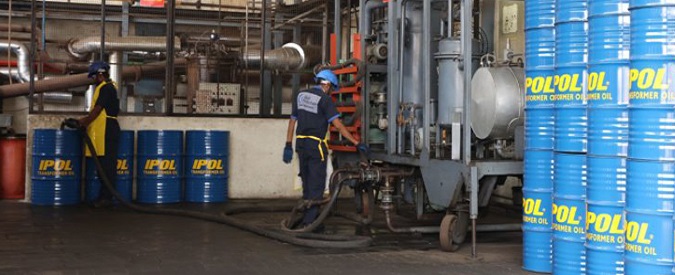
GP Petroleums Ltd. plans to eventually acquire a blending plant in southern India and to bank on the bazaar segment to increase its automotive lubricants sales, a company executive told Lube Report Asia.
GPPL is on a growth trajectory in the automotive and industrial lubricants market, CEO Hari Prakash Moothedath said during a recent interview. In the long term, the company will plan for expansion. One of the options is to acquire assets in a different location.
The company currently has blending plants in western Indias Vasai and Daman, with total production capacity of around 70,800 metric tons per year. But since GPs output is only around 44,000 t/y, Moothedath noted that the first step the company will take to meet growing demand is to maximize its existing capacity.
In coming years, The general Indian lube market demand is estimated to grow at around 3 percent annually, Moothedath said. GP expects to grow sales of its own brand, Ipol, at twice that rate and to exponentially grow sales of Repsol lubes. GP is licensed to manufacture and market the Spanish producers finished products in India.
Officials told Financial Express that GP plans to acquire a plant with capacity of between 44,000 and 88,500 t/y.
Moothedath said a new plant in the South will help the company supply its customers in the region faster, compared to supplying from Mumbai. A manufacturing base in southern India would also help lower transportation costs for the company, which currently supplies to customers across India through its network of 22 depots.
The Mumbai-based company said it is currently working with a consultant to predict the impact of the new Goods and Services Tax system on its business, noting that GST will likely influence the realignment of its distribution network. One of the important aspects that will be reviewed is our distribution network of depots and stock points. It is widely believed that there could be a reduction of depots to optimize the tax and logistics benefit, Moothedath said. We have set up a good network of distributors and plan to double the same in this fiscal year.
Industrial lubricants contribute approximately 40 percent of the companys revenue. GP also sells process oils, transformer oils, greases and other specialties in India and internationally.
Photo: GP Petroluems Ltd.

GP aims to increase its automotive lubricants volume from its current share of around 14 percent of its sales. In addition to launching more premium Repsol products, GP will focus on Indias bazaar segment. According to analysts, supplying to mechanic workshops, lubes shops and spare parts stores is the most lucrative automotive lubricants channel in India and continues to remain the key driver for players such as Castrol India Ltd., Gulf Oil Lubricants India Ltd. and Hindustan Petroleum Corp.
Moothedath said GP is also looking at working with major car, motorcycle and commercial vehicle original equipment manufacturers throughout the country. Thanks to the global strategic relationship of Repsol with Honda Motorcycles, that becomes a logical choice for us to start in India, he noted.
GP, formerly known as Sah Petroleums, posted a net profit of Rs 20.2 crore (Rs 202 million or U.S. $3.1 million) in the fiscal year 2016-2017, up 49 percent from Rs 13.6 crore. Annual net sales increased approximately 14 percent to about Rs 480 crore. Its customers include TAFE, Force Motors, Mahindra & Mahindra, Crompton Greaves, Royal Enfield and Tata Steel, among others.